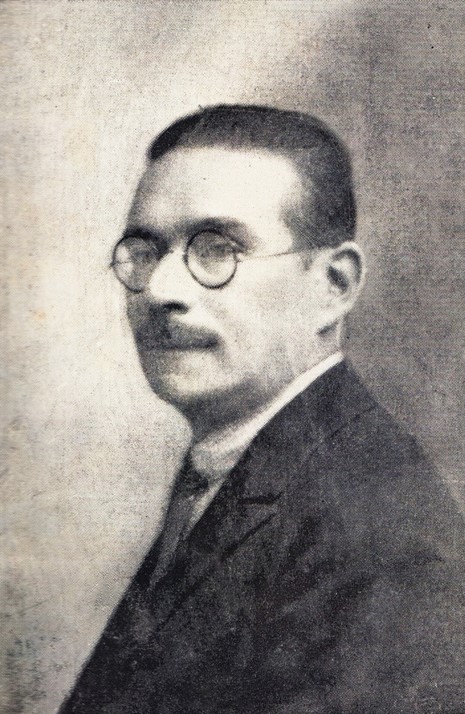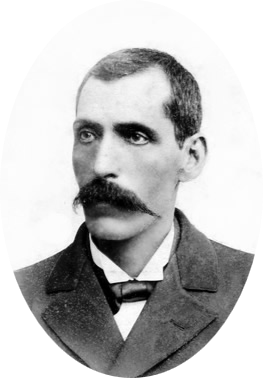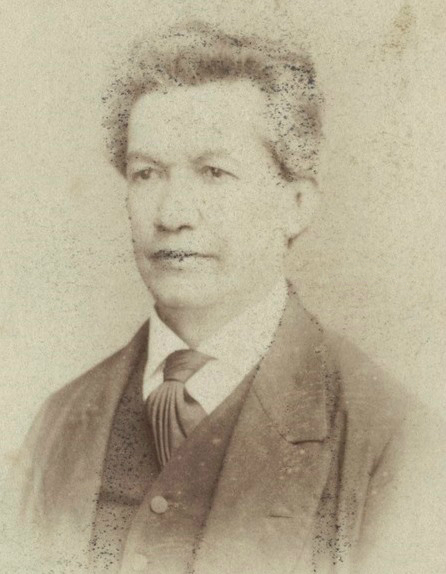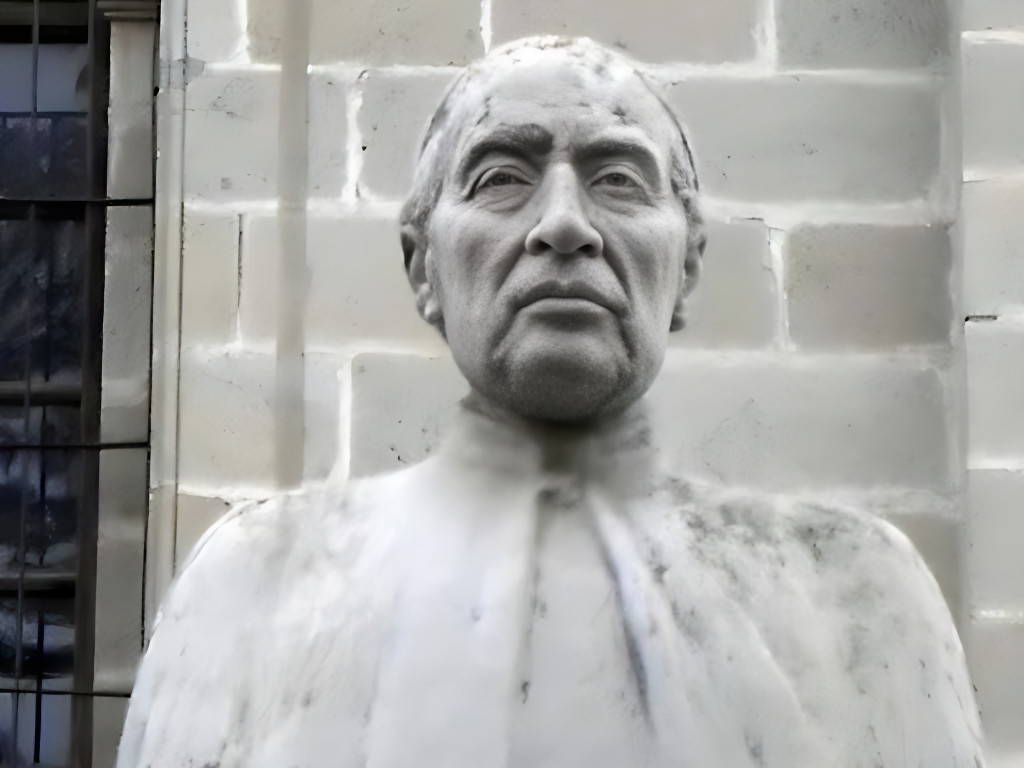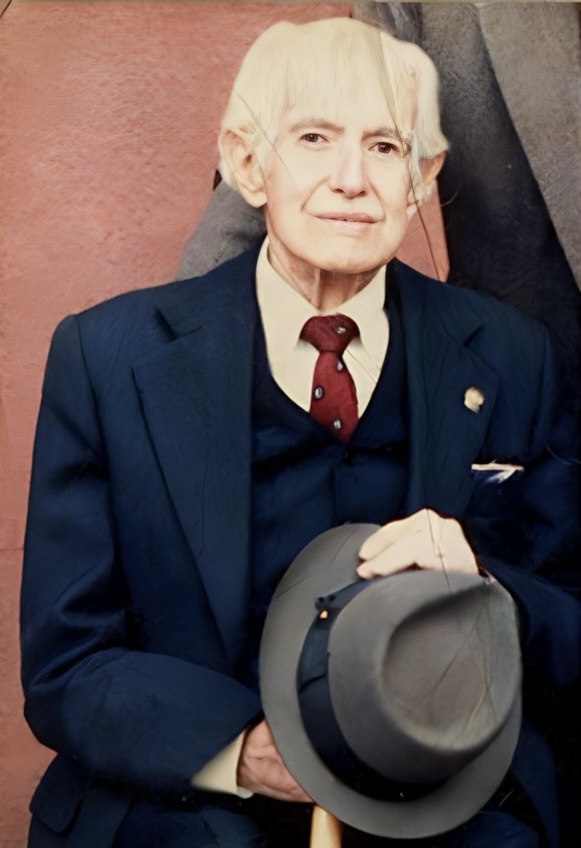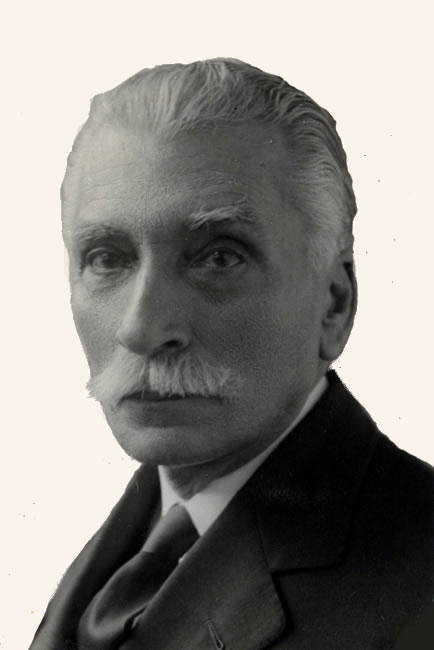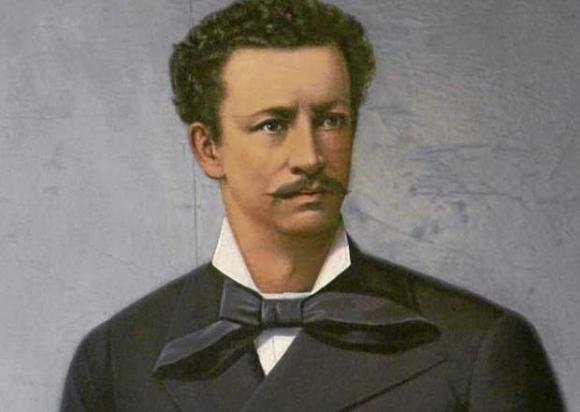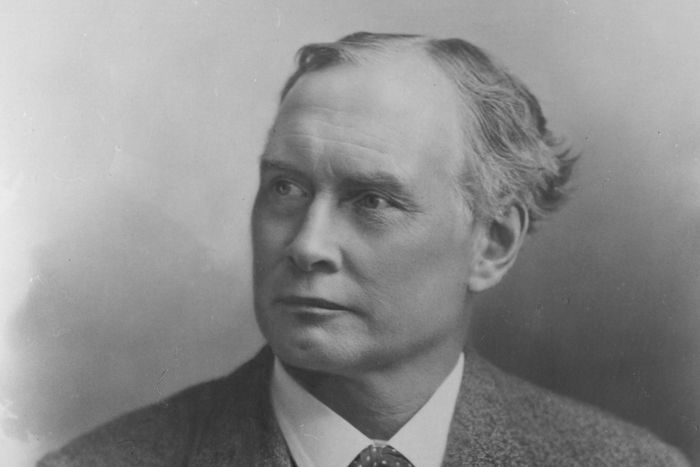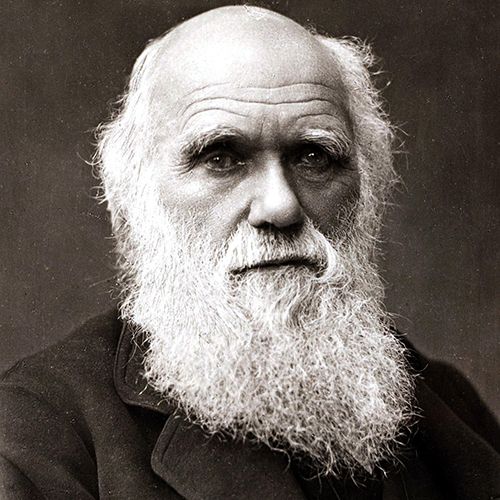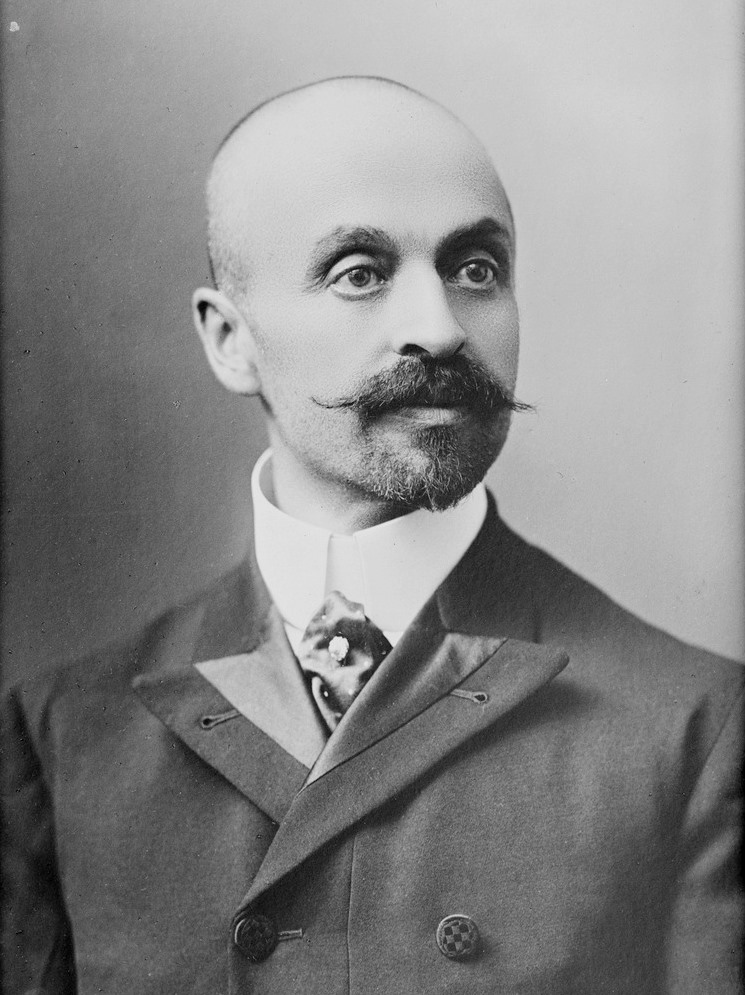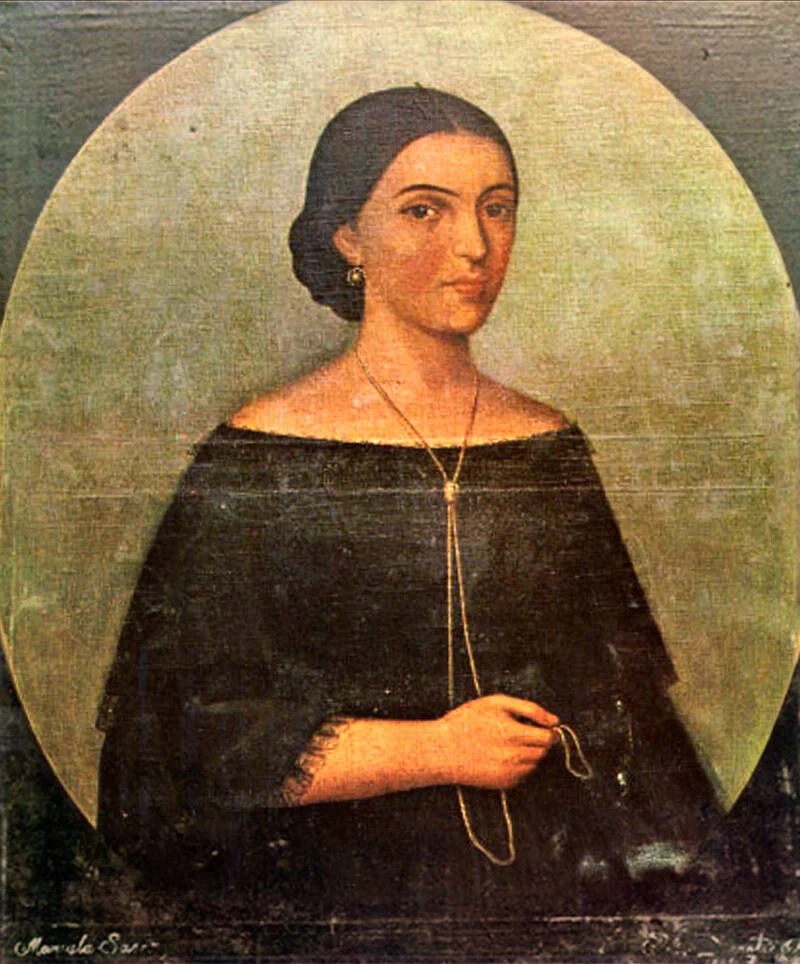Pastora Alomía de Guerrero (born Pastora Alomía Delgado, 1835 – May 21, 1919) was a poet from Ibarra, Imbabura, Ecuador, celebrated for her lyrical tenderness, harmony, and vivid imagery. After marrying in 1853, she began signing her work as Pastora Alomía de Guerrero or Pastora Alomía Guerrero. Recognized by the press in her time for her poetic talent, she was also a respected figure in her community. Though her poetic output diminished later in life, she left behind a notable body of work, including titles such as Un recuerdo a Pasto (1883), Desahogos y recuerdos (1894), and Una lágrima (1912). Her poems were featured in major Ecuadorian anthologies, such as Parnaso ecuatoriano (1879), where her piece “A María” was included. She died on May 21, 1919, at approximately 84 years of age; while some accounts suggest she may have passed away in Colombia, this has not been definitively confirmed.
Continue reading “Pastora Alomía de Guerrero”Category: 19th Century Writers
Manuel María Sánchez
Manuel María Sánchez Baquero (Quito, December 19, 1879 – July 28, 1935) was an Ecuadorian lawyer, educator, poet, and journalist who served as Minister of Public Instruction and rector of Instituto Nacional Mejía, where he championed educational reform. His poetry, including “Patria,” reflects themes of patriotism and social justice. A committed journalist, he co-founded the anti-government publications La Prensa and La Constitución. His legacy in Ecuadorian education, literature, and national identity endures, with numerous schools and public spaces named in his honor. In 1938, three years after Sánchez’s death, his family published a collection of his poetry titled Poesías, which includes many of his significant works.
Continue reading “Manuel María Sánchez”Manuel Nicolás Arízaga
Manuel Nicolás Arízaga Machuca (Cuenca, December 12, 1856 – December 28, 1906) was an Ecuadorian lawyer, poet, journalist, and politician. Born into a prominent family, he became known for his involvement in revolutionary activities against the dictatorship of Ignacio de Veintemilla and later served as a Deputy in Ecuador’s National Convention. A prolific writer, he contributed poetry, essays, and political articles to numerous publications, often advocating conservative ideals and Ecuadorian nationalism. Arízaga spent multiple periods in exile, where he continued his literary work, including the collection Voces del Destierro. His literary and political contributions left a lasting impact on Ecuadorian intellectual and public life.
Continue reading “Manuel Nicolás Arízaga”Miguel Moreno Ordoñez
Dr. Miguel Moreno Ordóñez (Cuenca, March 3, 1851 – Cuenca, August 30, 1910) was an Ecuadorian poet, physician, politician, and philanthropist. After earning his medical degree from the University of Cuenca in 1876, he practiced medicine in Peru before returning to Ecuador, where he became known for his charitable work and religious devotion, including the construction of the Santo Cenáculo. A notable poet, he co-authored Sábados de Mayo (1877; “Saturdays in May”) and later published El Libro del Corazón (1907; “The Book of the Heart”). For his social and religious contributions, he was awarded the Papal Knighthood of the Order of St. Gregory the Great by Pope Pius X in 1907.
Continue reading “Miguel Moreno Ordoñez”Pedro Fermín Cevallos
Pedro Fermín Cevallos Villacreses (Ambato, July 7, 1812 – Quito, May 21, 1893) was an Ecuadorian historian, lawyer, and politician known for his significant contributions to the country’s historiography and legal system. A key figure in 19th-century Ecuador, he authored the six-volume Resumen de la Historia del Ecuador desde su origen hasta 1845 (1870; “Summary of the History of Ecuador from its Origin until 1845”), the first comprehensive account of the nation’s history. Initially a liberal, he later shifted towards conservatism and served as Minister of Government and Foreign Relations, as well as a Supreme Court judge. Cevallos was also the first president of the Ecuadorian Academy of Language, playing a vital role in Ecuador’s intellectual development.
Continue reading “Pedro Fermín Cevallos”Juan Félix Proaño Castillo
Dr. Juan Félix Proaño Castillo (Riobamba, July 20, 1850 – Quito, July 30, 1938) was an Ecuadorian priest, theologian, writer, educator, and political figure, whose extensive contributions spanned the late 19th and early 20th centuries, significantly shaping Ecuador’s cultural and religious landscape. Celebrated for founding “El Templo del Sagrado Corazón de Jesús” in 1892, a newspaper that integrated religious teachings with cultural and literary discourse, Proaño stood firm against the liberal reforms of his era. This conviction led to his exile, during which he persisted in his scholarly and pastoral work. His historical drama “Quisquís” is particularly notable for its portrayal of Incaic civilization, underscoring his commitment to chronicling and preserving Ecuador’s rich historical and cultural heritage.
Continue reading “Juan Félix Proaño Castillo”Ángel Leónidas Araújo Chiriboga
Ángel Leónidas Araújo Chiriboga (Riobamba, October 21, 1900 – Quito, February 15, 1993) was a figure of remarkable versatility and profound influence within Ecuador’s cultural landscape. His diverse career spanned composition, poetry, public service as a tax inspector for the Ministry of Finance, hotel management, and a notable tenure as editor-in-chief of the Estampa de Bogotá magazine, but it was his indelible contributions to the pasillo genre that cemented his legacy. This article explores the life and works of this distinguished Ecuadorian artist, whose talents bridged the realms of music and literature, leaving an enduring mark on his nation’s cultural heritage.
Continue reading “Ángel Leónidas Araújo Chiriboga”Alfredo Baquerizo Moreno
Alfredo Baquerizo Moreno (Guayaquil, September 28, 1859 – New York City, March 20, 1951) was a prominent Ecuadorian politician, author, and intellectual figure of the early 20th century. Baquerizo Moreno excelled in various fields throughout his life. He displayed his artistic talents through his poetry, influenced by Spanish author Gustavo Adolfo Bécquer, and his novels, which showcased his imaginative storytelling. Baquerizo Moreno’s career in politics was equally impressive, serving as the President of Ecuador from 1916 to 1920. During his presidency, he implemented progressive reforms and prioritized social justice, advocating for the abolition of debt imprisonment and improving labor conditions. Baquerizo Moreno’s lasting contributions to literature and his dedication to public service have secured his place in Ecuadorian history as a multifaceted and influential figure.
Continue reading “Alfredo Baquerizo Moreno”Carlos Carbo Viteri
Carlos Carbo Viteri (April 13, 1865 – August 13, 1922) was a distinguished Ecuadorian poet, translator, congressman, and diplomat, renowned for his substantial contributions to his country’s literature and politics. Influenced by classical Greek and Latin literature, his romantic poetry captured the nuances of everyday life, earning him recognition and acclaim. His poignant poem “A Guayaquil,” composed for the centennial birth anniversary of Vicente Rocafuerte, notably secured him the second prize in a 1883 poetry contest. He also translated foreign works, such as Alphonse de Lamartine’s “El Poeta Moribundo,” into Spanish, making them accessible to a wider audience. In his political career, Carbo Viteri served actively as a congressman while passionately advocating for conservative principles. His service extended to several important positions including the Secretary of the Guayas Governorate and the Municipal Syndic of Guayaquil. Additionally, he represented Ecuador internationally as its Chargé d’Affaires in Chile. His impactful work in both the literary and political spheres has left an enduring imprint on Ecuador’s cultural and political history.
Continue reading “Carlos Carbo Viteri”Juan Montalvo
Juan Montalvo, born Juan María Montalvo y Fiallos (Ambato, Ecuador, April 13, 1832 – Paris, France, January 17, 1889) was an influential Ecuadorian author, essayist, and formidable polemicist whose writings had a significant impact on the political landscape of his time. Known for his notable works such as “Las Catilinarias” (1880) and “Siete Tratados” (1882), Montalvo exhibited a fiery, unapologetic style, often challenging and criticizing the political status quo. As a political liberal, his beliefs were characterized by anti-clericalism and a fierce opposition to the authoritarian regimes of Gabriel García Moreno and Ignacio de Veintemilla. Despite facing exile multiple times, his penetrating critiques and commitment to democratic principles left a lasting legacy in Ecuador and beyond. Montalvo’s audacious spirit, combined with his eloquent prose, positioned him as a key figure in Latin American literature, while his life and works continue to symbolize the power of the written word as a tool for political change.
Continue reading “Juan Montalvo”Edward Whymper
Edward Whymper (London, England, April 27, 1840 – Chamonix, France, September 16, 1911) was an English mountaineer, explorer, author, and illustrator. Whymper is most famous for his exploration of the Alps and for being the first man to climb the Matterhorn in 1865. In 1880, he ventured on an ambitious expedition to Ecuador with a specific interest in studying the effects of altitude sickness and reduced pressure on the human body. Guided by the experienced Italian mountaineer Jean-Antoine Carrel, Whymper ascended several of Ecuador’s volcanoes, including the Chimborazo and Cotopaxi, making him the first to do so. Beyond the mountaineering feats, his exploration of Ecuador’s mountains resulted in “Travels Amongst the Great Andes of the Equator” (1891), a significant publication that offered deep insights into high-altitude physiology, the diverse biodiversity, and the breathtaking landscapes of the Andes.
Continue reading “Edward Whymper”Charles Darwin
Charles Darwin (Shrewsbury, Shropshire, England, February 12, 1809 — Downe, Kent, England, April 19, 1882) was a renowned English naturalist and biologist who is best known for his significant contributions to the science of evolution. His most famous work, “On the Origin of Species” (1859), drastically shifted scientific thought and proposed the idea of natural selection. Darwin’s time spent in the Galápagos Islands of Ecuador during his voyage on the HMS Beagle was instrumental in shaping his theories. Here, he meticulously observed and documented a variety of species, including the islands’ famous finches, which varied greatly in characteristics such as beak shape and size from island to island. The diversity and adaptability of these species in response to their unique environments led Darwin to conceptualize the principles of natural selection and evolution. His work, much of which was deeply rooted in the data gathered in the Galápagos, revolutionized our understanding of the natural world and has had an enduring impact on numerous fields of study, from biology to anthropology.
Continue reading “Charles Darwin”Honorato Vázquez Ochoa
Honorato Vázquez Ochoa (Cuenca, October 21, 1855 – January 26, 1933) was an Ecuadorian diplomat, lawyer, educator, painter, grammarian, writer, and poet considered one of the most prominent figures of Cuencan lyricism in the 19th century. Vázquez’s literary works spanned different genres, including poetry, essays, and historical accounts. Notable among his works is the poetry book “Los sábados de mayo,” co-written with Miguel Moreno, which exemplified the tendencies of national romanticism in Ecuador. Vázquez’s poems, such as “Morenica del Rosario,” demonstrated his sentimentality and mastery of language, including the use of archaic Spanish. Furthermore, his contributions to the field of linguistics were notable, with regular essays on the Spanish language, Quechua, neologisms, and other language-related topics. In 1886, at the age of 31, he delivered his induction speech to the Ecuadorian Academy of Language, making him one of the youngest members to ever join.
Continue reading “Honorato Vázquez Ochoa”Manuela Sáenz
Manuela Sáenz Aizpuru de Thorne, commonly known as Manuelita Sáenz (Quito, Ecuador, during the Spanish Empire, December 27, 1797 – Paita, Peru, on November 23, 1856) was a noblewoman, political activist, and heroine in the fight for independence from Spain. Although she did not publish her writings during her lifetime, she did leave behind a significant amount of correspondence, including letters to Simon Bolívar, which provide valuable insight into her life and her role in the struggle for independence. Sáenz became involved in the revolutionary movement at an early age and was the lover and confidante of Simón Bolívar before and during the war for independence. She was instrumental in saving Bolívar’s life on at least one occasion, which led Bolívar to give her the title “Libertadora del libertador” [Liberator of the Liberator]. She accompanied him on many of his campaigns and was present at the Battle of Ayacucho, which marked the end of the Spanish presence in South America. After the war, Sáenz was granted the Order of the Sun or “Dame of the Sun” [Caballeresa del Sol] for her role in the struggle. However, her political activities and her unconventional personal life, which included several affairs, made her the target of criticism and condemnation by many in the conservative society of the time. She ultimately died in exile and poverty. Nevertheless, her legacy as a revolutionary and a feminist icon has endured, and she is remembered today as a symbol of the struggle for independence and women’s rights in South America. She has been the subject of many books in and outside of Ecuador.
Continue reading “Manuela Sáenz”Mireya Romero Plaza
Mireya Romero Plaza de Bravomalo, aka Mireya de Bravomalo or Mireya Romero y Cordero (Quito, January 29, 1929 – July 2014) was an Ecuadorian poet, novelist, and feminist. In 1953, at the age of 23, she published a novel entitled, “La pena fuimos nosotras,” which was read by many women and that put her in the forefront of feminism in Ecuador in the 50’s. In 1956, she published a poetry book entitled, “Heliofina,” prologued by poet Francisco Granizo Rivadeneira. She sometimes used the pseudonym Marga del Río.
Continue reading “Mireya Romero Plaza”
